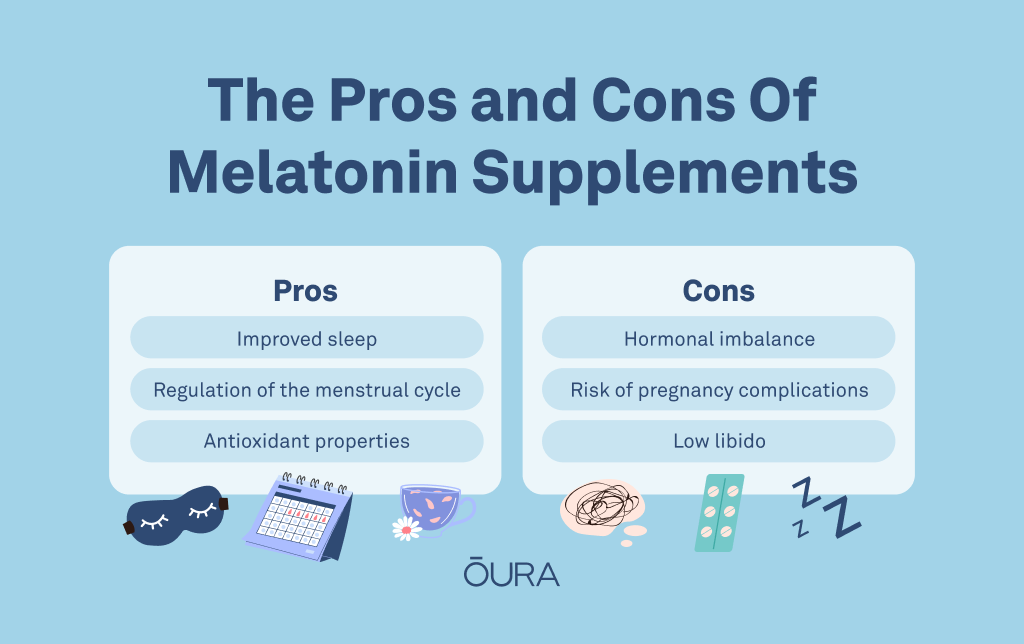As you sleep, your mind and body are actively engaged in essential processes that help you maintain, repair, and strengthen your body.
These processes occur at different stages of sleep, including deep and REM sleep. Given the vital role of sleep in your overall health, it’s not surprising that it can also impact your fertility.
| Member Tip: By tracking their sleep stages in the Oura app, Oura members can monitor whether they are getting enough of each sleep stage to ensure their body is fully engaged in these crucial processes. |
Sleep and Fertility: What the Research Says
Unfortunately, there is a lack of rigorous research in the area of sleep and fertility, explains Dr. Eleni Jaswa, MD, fertility researcher and Oura advisor. “While we lack direct data proving a causal relationship between sleep quality and fertility, I think it remains prudent to privilege sleep for its established multi-system benefits – on mood, energy, metabolism, the immune system, and more. These are all important for fertility.”
Some research has dived into the mechanisms behind sleep and fertility, however. Studies have shown that sleep disturbances related to shift work are associated with diminished reproductive capacity and reproductive health outcomes. This suggests that circadian misalignment (or going against your body’s natural circadian rhythm) can have negative effects.
Other research has posited that sleep disturbances associated with sleep apnea, which is prevalent in women with PCOS (polycystic ovarian syndrome) may be adversely affect fertility.
RELATED: PCOS and Sleep Disturbances: The Link Between the Two
What’s more, because a lack of sleep impacts your overall mood and libido, you may not be “in the mood” as frequently, which can impact chances of conception.
How Melatonin Impacts Sleep and Fertility
Often referred to as the “sleep hormone,” melatonin plays a direct role in promoting quality sleep and regulating your circadian rhythm. However, there is growing evidence that melatonin also helps regulate reproductive hormones in women and influences their ovulation and menstrual cycles.
In fact, melatonin has been found to have a direct impact on ovarian function, plus measurable levels of the hormone have been identified in other reproductive organs and follicular fluid, emphasizing its role in reproductive function.
Here are four ways melatonin impacts sleep and fertility:
1. Regulates Reproductive Hormones and Ovulation
The reproductive hormones, including luteinizing hormone (LH), follicle-stimulating hormone (FSH), and prolactin, play a vital role in ovulation, menstrual cycle regulation, and maintaining the health of the reproductive system.
LH and FSH are crucial for the development and maturation of the ovarian follicle, which is responsible for releasing the egg during ovulation. On the other hand, high levels of prolactin, also known as hyperprolactinemia, interfere with the production of other hormones, such as progesterone and estrogen. This can have a negative impact on ovulation and lead to irregular or missed periods, as well as infertility.
Due to its link with all of these hormones, melatonin enhances the development of the ovarian follicle and the production of hormones necessary for ovulation. It also increases the chances of successful ovulation.
2. Regulates the Menstrual Cycle
Melatonin plays a crucial role in the menstrual cycle by regulating the secretion of estrogen and progesterone. Both hormones play a role in ovulation, and they are essential for the maintenance of the endometrial lining of the uterus, which is necessary for implantation and successful pregnancy.
Consistently high estrogen levels often lead to irregular periods, and they can affect your ability to ovulate. According to research, irregular or abnormal ovulation accounts for about 30% of all cases of infertility. High levels of estrogen have also been found to disrupt embryo implantation among people undergoing in vitro fertilization (IVF).
Similarly, progesterone regulation is important since this hormone helps increase and sustain fertility by preparing the uterus to accept, implant, and maintain a fertilized egg. As pointed out by Dr. Amy Beckley, the inventor of Proov, a test that confirms successful ovulation, “Without enough progesterone, it can be more difficult to conceive or stay pregnant.”
| Member Tip: Use Cycle Insights to track your menstrual cycle. Oura uses your nightly body temperature trends, as well as other biosignals like heart rate variability (HRV) and respiratory rate to determine your period window. |
READ MORE: Using Oura Temperature to Track Your Menstrual Cycle
3. Combats Oxidative Stress
Oxidative stress, which occurs when the body has many free radicals (unstable molecules) but not enough antioxidants to eliminate them, is associated with decreased female fertility. This is because oxidative stress can damage developing eggs and harm their fertilization capacity.
Clinical studies have revealed that melatonin has oxidative stress-fighting abilities, and melatonin supplementation in IVF may result in better pregnancy rates.
4. Relationship with Fertility Rates
Lower melatonin levels have been discovered in women with infertility, suggesting that melatonin may be a key factor in fertility rates. Per a review published in the International Journal of Reproductive BioMedicine (IJRM), low levels of melatonin can lead to menstrual cycle irregularities, anovulation, and infertility.
Nonetheless, these studies have also demonstrated that melatonin supplementation may improve fertility rates in women by regulating reproductive hormone levels and improving the quality of the ovarian follicle.
5 Lifestyle Changes To Optimize Melatonin Levels for Sleep and Fertility
The human body typically produces enough melatonin on its own. However, there are steps you can take to optimize your natural melatonin production:
- Maintain a healthy lifestyle: A healthy lifestyle that includes regular moderate exercise, a balanced diet, and stress management can help to maintain stable melatonin and fertility levels.
- Stick to a regular sleep schedule: In one study, researchers found that the melatonin rhythm in humans is influenced by sleep times. Establishing and sticking to a regular sleep schedule can promote stable melatonin levels.
- Get natural light exposure: Natural light exposure, especially in the morning, helps regulate melatonin levels and promotes optimal levels of the hormone.
- Avoid artificial light at night: Exposure to artificial light at night can suppress melatonin production, making it more difficult to maintain the right levels of the hormone. It’s a good idea to limit screen time before bed and avoid using electronics in the bedroom. As Dr. Luis Buenaver, a sleep expert at John Hopkins Medicine, puts it: “Create optimal conditions for [melatonin] to do its job by keeping the lights low before bed. Stop using your computer, smartphone, or tablet — the blue and green light from these devices can neutralize melatonin’s effects.”
- Consider melatonin supplements: Melatonin supplements may be particularly beneficial if you struggle with maintaining stable melatonin levels.
An important caveat: Avoid taking melatonin supplements for a prolonged amount of time, as it may lead to downregulation of melatonin receptors and decrease natural melatonin secretion.
Melatonin Supplements: How Do They Affect Sleep and Fertility?

Melatonin supplements, as the name suggests, are oral pills that help you get enough melatonin to sleep better. Because of the numerous benefits they provide, these supplements are becoming increasingly popular among people trying to conceive.
Some benefits include:
- Improved sleep quality: Melatonin supplements may help improve sleep quality, which can positively affect reproductive health and hormonal balance.
- Regulation of menstrual cycle: Since melatonin helps regulate the menstrual cycle, supplementing it can increase the chances of ovulation and improve fertility.
- Antioxidant properties: Melatonin’s antioxidant properties protect reproductive cells from damage caused by oxidative stress. This can improve egg quality in women and increase the chances of conception.
That said, melatonin supplements have some drawbacks:
- Hormonal imbalance: Since melatonin is a hormone, supplements can disrupt the delicate hormonal balance in the body, leading to potential problems with fertility. For instance, when combined with progesterone, too much melatonin can suppress ovulation.
- Risk of pregnancy complications: Although animal studies have shown that melatonin supplements reduce the risk of pre-eclampsia and preterm birth, human studies are in the early stages, and long-term effects are still unknown. For example, in one animal study, researchers found that additional melatonin negatively affected baby birth weight and mortality.
- Lower libido: One of the side effects of melatonin supplements is low libido, which can decrease sexual activity and affect your chances of conceiving.
It’s essential to speak with your healthcare provider before taking melatonin supplements for fertility and to use them only under medical supervision. Oura members can use Tags to explore how certain behaviors, habits, and choices, including melatonin supplements, affect their sleep quality and overall wellness.
READ MORE: Everything You Need To Know About Melatonin





